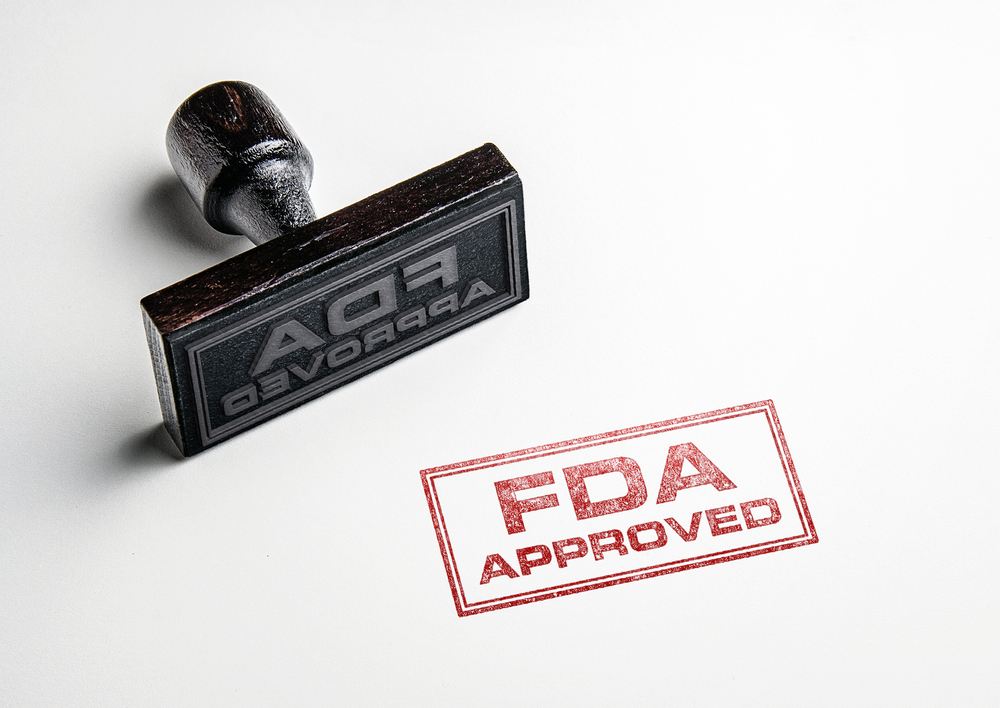
FDA approves a new drug for symptoms of Huntington's disease
Deutetrabenazine becomes the first new drug in a decade licensed by the FDA for symptoms of Huntington's disease

Significant news for the Huntington’s disease community this week, as the USA’s drug regulator, the FDA, has formally approved Austedo, also known as deutetrabenazine, for prescribing in HD. This modified form of tetrabenazine helps control chorea, the jerky movements often found in HD patients, but is taken twice rather than three times a day.
Background on tetrabenazine
Tetrabenazine has a long history as a treatment of Huntington’s disease – which we’ve previously covered at HDBuzz here and here. The drug is used to help control the jerky, dance-like movements associated with the disease. Tetrabenazine was approved for HD in the 1970’s in some countries, including the United Kingdom, but only in 2008 did it become the first drug explicitly approved for HD in the United States.
Controlling chorea can be an important part of the fight against HD symptoms, and many HD patients find relief with tetrabenazine. But like all drugs, tetrabenazine has a downside, including a risk of increased depression and suicidal thoughts. Another problem with tetrabenazine is that it is quickly processed by the body, so lots of HD patients have to take the pills three pills a day. This is especially tricky for in HD, where people may have memory and other thinking problems that makes it easy for them to forget to take their medicine.
Because of these problems, a small biotechnology firm called Auspex Pharmaceuticals developed a tweaked version of tetrabenazine (described here). They called this new version of tetrabenazine deutetrabenazine (or sometimes SD-809), because it involves switching atoms called deuterium into tetrabenazine’s structure. This tweak helps the drug stick around in the blood stream longer – which means less frequent pills are needed.
The Huntington Study group, in collaboration with Auspex, conducted two trials of deutetrabenazine from 2013-2015 called First-HD and ARC-HD. These studies investigated deutetrabenazine in two different ways – the First-HD study tested whether deutetrabenazine was better than dummy pills at controlling chorea. The results of this trial were positive – like tetrabenazine, deutetrabenazine treatment reduces chorea in HD patients. The Arc-HD study was designed to ensure the safety of switching patients taking tetrabenazine to deutetrabenazine, which was proven safe.
What’s happening now?
Recently, the deutetrabenazine story changed in several important ways. First, Auspex was bought by Israeli drug company Teva. Second, Teva applied to the American FDA for approval for deutetrabenazine for the treatment of HD, based on the success of the Arc- and First-HD studies.
The approval process for deutetrabenazine hit a speedbump in mid-2016, when the FDA asked Teva for some additional information about the drug. Deutetrabenazine is the first human drug with deuterium atoms to proceed so far, so extra caution by Teva and the FDA seem warranted.
This week, Teva announced that the FDA had been satisfied, and approved deutetrabenazine for use in HD patients in the United States. This suggests all the FDA’s additional safety questions had been addressed, and that they were happy deutetrabenazine was safe for use. Since the drug will now be marketed and sold, it gets yet another, commercial, name, which is Austedo.
What about cost?
The early indications are that Austedo may end up being somewhat less expensive than tetrabenazine. Early official statements from Teva suggest that Austedo may cost about a third less than the equivalent dose of tetrabenazine. It’s difficult predict how the entry of a new drug will affect overall costs for HD patients, and things may change as prescribing patterns settle down. For example, the manufacturers of tetrabenazine might drop their prices, or the new drug might become more expensive if uptake is lower than expected.
Take-home message
This is a happy ending to the deutetrabenazine story and we look forward to hearing how people with HD are getting on with this new drug in the real world. The HD community did its part by quickly filling and participating in trials run by the HSG, while Auspex and Teva did the difficult work of shepherding the drug through the approval process.
Austedo adds another arrow to the quiver of families and doctors who are working to control the symptoms of HD. Any effective treatments for the symptoms of HD are a welcome support, as we work to develop drugs to prevent or slow its progression.
Learn more
For more information about our disclosure policy see our FAQ…


